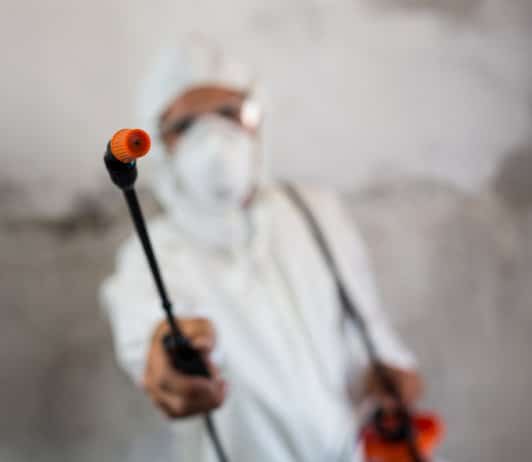84.3% of cannabis samples submitted to a lab in California have tested positive for pesticide residues – a “cause for concern” says the laboratory.
Of significant concern to Steep Hill – the testing laboratory – was the presence of a pesticide called Myclobutanil (actually a fungicide).
Usually used on almonds and strawberries, it can generally be legally applied in the USA. However, end consumers don’t smoke almonds and strawberries. The problem with Myclobutanil is when it’s heated to 205°C, it converts to hydrogen cyanide; which is extremely toxic and classified as a chemical weapon. Myclobutanil’s use on tobacco was (somewhat ironically) banned for this reason.
Myclobutanil was present in 65% of all cannabis samples tested.
“As far as we’re concerned, medicine should always be clean, safe, and effective. Unfortunately, our recent study discovered that 83.2% of the samples assessed by our triple quadrupole mass spectrometer contained pesticides that would have failed under the Oregon regulations,” said Jmichaele Keller, President and CEO of Steep Hill.
Pesticides aren’t just a problem in California’s cannabis. As the race is on to meet market demand, gain better yields and bigger market share; pesticide usage is becoming more prevalent.
In some states controls have been introduced; but even in Oregon, 257 pesticide products are permitted. Colorado’s list is far shorter – around 18 approved products.
In March this year, a large quantity of cannabis grown in Colorado was recalled after it was allegedly treated with imidacloprid; an allegation the company involved strongly denied. It’s also common pesticide, but one not approved for use on cannabis.
As with other similar revelations about other products, dispensary staff may find increasing enquiries around provenance and pesticide as consumers become aware of the issues. “Organic” medical marijuana is likely to become more popular.
Currently, there aren’t any pesticides registered specifically for use on marijuana plants and the issue of pesticide residue on final products hasn’t been reviewed for safety or human health effects.
The Myclobutanil issue also raises another question – why smoke medical marijuana at all?
Burning any plant material can create toxic byproducts and increase health risks. However, vaping operates at far lower temperatures and there is no combustion involved. In this age of high-tech electronics, burning plant material is just seems so passé.


